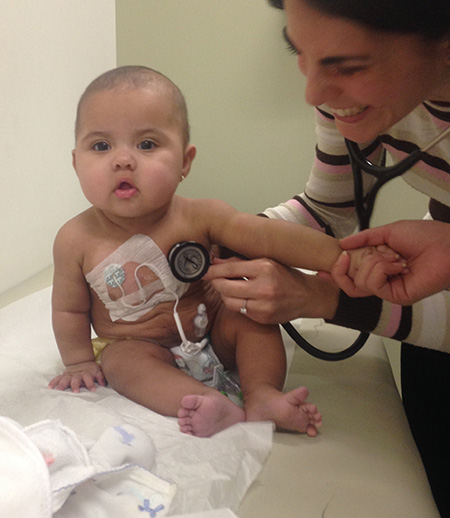What Does the Science Say?
Anti-inflammatory diets have been widely studied over the past decades, particularly for their effects on chronic diseases, the immune system, and gut health. Scientific evidence supports that this type of nutrition can:
1. Reduce systemic inflammation
Research shows that certain foods can raise or lower inflammation markers like C-reactive protein (CRP), interleukins, and TNF-alpha. Eating a diet rich in vegetables, healthy fats, and antioxidants can help balance these substances and support a healthier immune response.
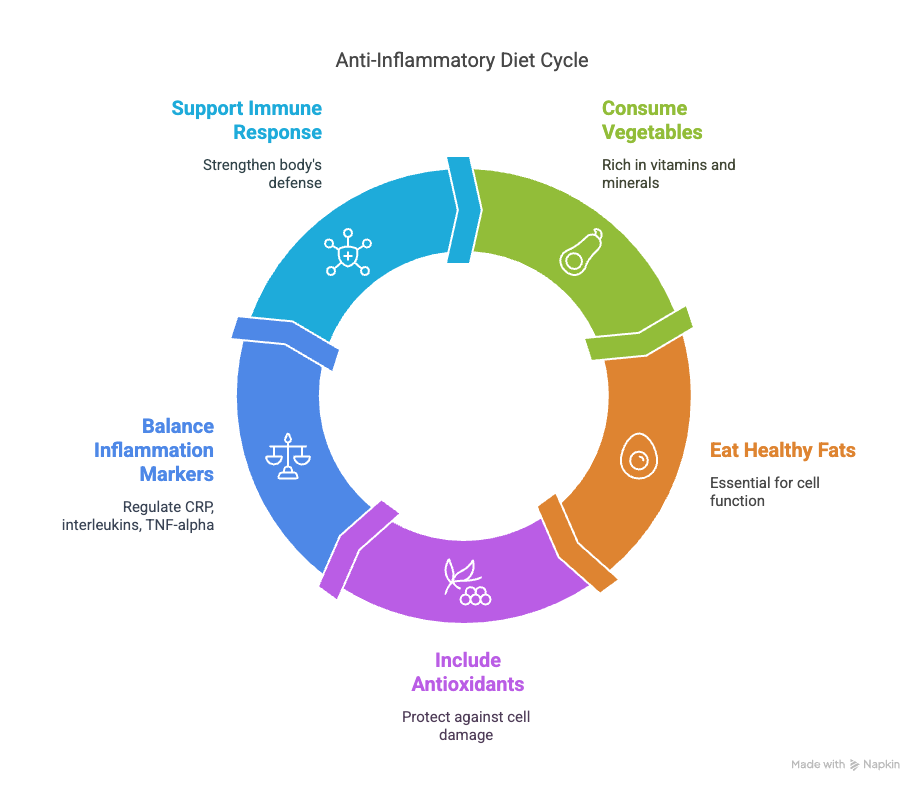
Reference: Calder, P. C. (2017). Omega-3 fatty acids and inflammatory processes. Nutrients.
2. Improve gut health
Following an anti-inflammatory diet can help restore a healthy balance in the gut microbiota, strengthen the intestinal barrier (preventing ‘leaky gut’), and improve how nutrients are absorbed — all of which are especially important for children facing serious digestive challenges.
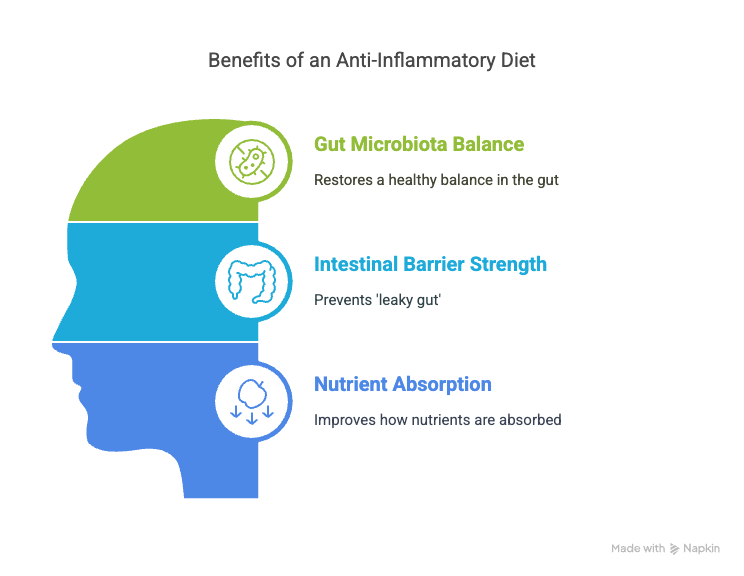
Reference: Tilg, H., & Moschen, A. R. (2014). Microbiota and diabetes: an evolving relationship. Gut.
3. Strengthen the immune system
When we limit foods that trigger chronic inflammation, the immune system can work more effectively. This becomes especially important for children who are immunosuppressed or who face frequent infections, helping them stay stronger and better protected.
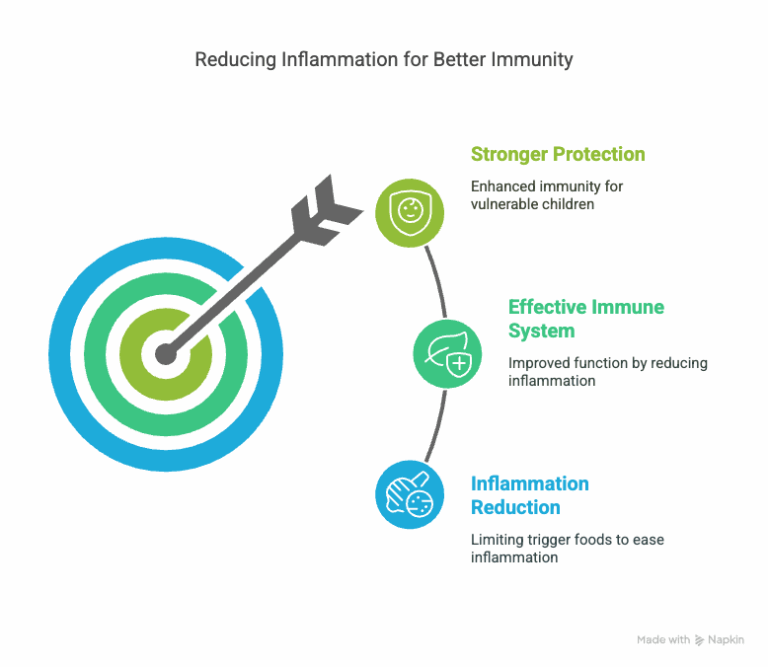
Reference: Tilg, H., & Moschen, A. R. (2014). Microbiota and diabetes: an evolving relationship. Gut.
4. Protect neurological and emotional development
Chronic inflammation has been connected to challenges in neurodevelopment, sleep, and behavior. By reducing it, we can help support emotional and cognitive balance — something many parents begin to notice as they make positive changes in their children’s diets.
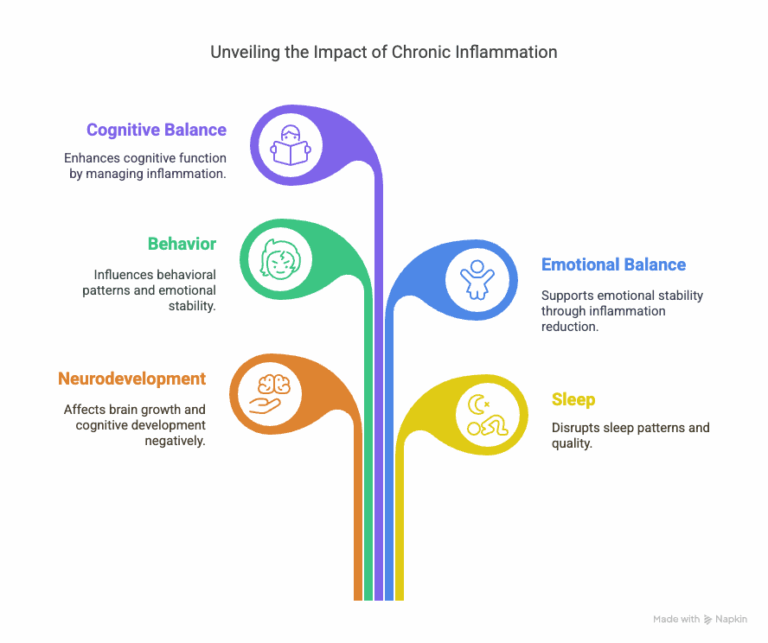
Reference: Lopresti, A. L., et al. (2013). The effect of dietary inflammation on mental health. Brain, Behavior, and Immunity.
5. Support in Complex Diseases
Although there are no specific studies yet on Berdon syndrome, the medical principles behind these diets — lowering inflammation, supporting gut health, and strengthening the immune system — are highly applicable. Many families facing rare, autoimmune, or metabolic conditions have already embraced them as a valuable part of their care journey.
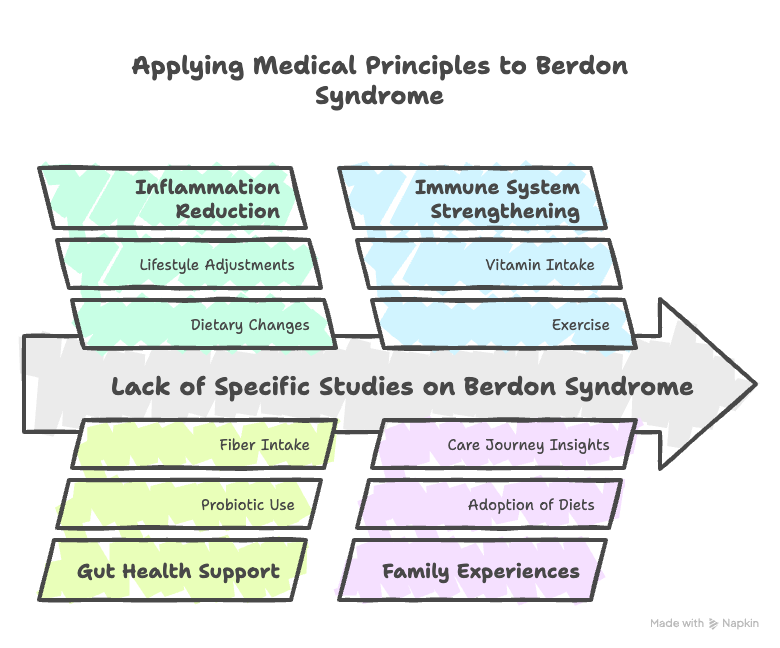
What the Evidence Tells Us
While an anti-inflammatory diet is not a substitute for medical treatments, it can be a powerful ally in the healing journey. When guided by professionals and thoughtfully integrated, it has the potential to bring real improvements in well-being and quality of life — especially for children with delicate digestive systems. Every small step toward nurturing their health matters.







